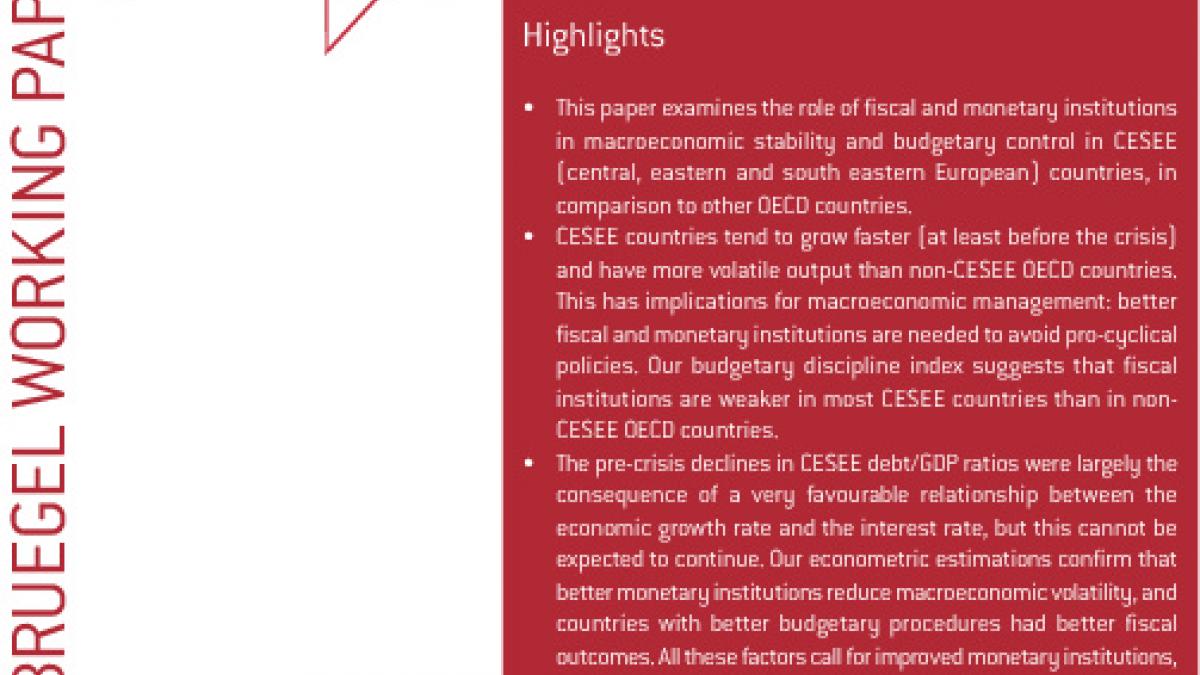The fiscal and monetary institutions of CESEE countries

This working paper by Zsolt Darvas and Valentina Kostyleva examines the role of fiscal and monetary institutions in macroeconomic stability and budgetary control in CESEE (central, eastern and south eastern European) countries in comparison to other OECD countries. A new budgetary discipline index suggests that fiscal institutions are weaker in most CESEE countries than in non-CESEE OECD countries. The sizeable debt/GDP ratio declines in CESEE before the crisis was largely the consequence of a very favourable relationship between the economic growth rate and the interest rate, but such a favourable relationship is not expected in the future. Econometric estimations confirm that better monetary institutions reduce macroeconomic volatility and that countries with better budgetary procedures have better fiscal outcomes.
A version of this publication was also released on the OECD Journal on Budgeting



